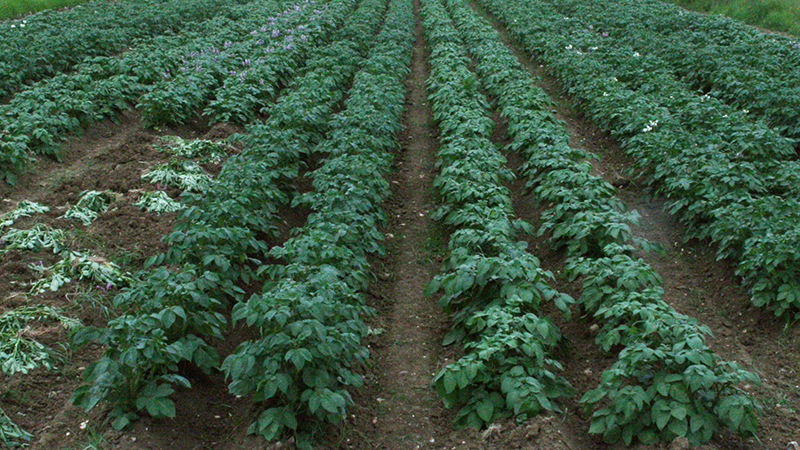Analysis released by PAN-UK has revealed that the Conservative government attacked pesticide residue safety limits on a range of common GB food items including blackberries, grapes, onions and potatoes. Between 2022 and 2024, safety limits were weakened for 115 types of produce. While most of the food types affected are fruit and vegetables, the impact is broader and includes coffee beans and grains such as wheat and rice. Tea has suffered some of the most dramatic rises, with safety limits for the chemicals Boscalid and Chlorantraniliprole both increased by 4,000 times.

In total, the changes – which were pushed through quietly over the past two years – weaken the safety limits for 49 different active substances, 15 of which (30%) are classified as “Highly Hazardous Pesticides” meaning that they pose a particularly high risk to human health or the environment.
The government increased the amount of glyphosate allowed in beans by 7.5 times (from two mg per kilogram of food up to 15).Glyphosate is classified as a ‘probable human carcinogen’ by the WHO. Meanwhile, the safety limit for the endocrine disrupting chemical (EDC), Bifenthrin, has increased by 50 times in both avocados and pomegranates. EDCs can interfere with hormone systems potentially leading to birth defects, developmental disorders and reproductive problems. In contrast to these GB rises, the EU’s safety limits have remained the same.
Nick Mole from PAN UK said, “Safety limits have been undermined for a worrying list of pesticides which includes ‘developmental or reproductive toxins’, endocrine disrupters and carcinogens. At a time when cancers and other chronic diseases are on the rise, we should be doing everything we can to reduce our chemical exposure. In reality, we have no idea what this ongoing exposure to tens – or even hundreds – of different chemicals is doing to our health over the long-term.”
The changes also pose a risk to the environment in countries where our food is grown. Strict safety limits force foreign growers exporting to Britain to keep pesticide residues to a minimum, or risk their exports being rejected for not meeting GB legal requirements. Under these latest changes wheat and oats are now allowed to contain far larger amounts of neonicotinoids, the pesticides notorious for driving global declines in pollinator populations.In contrast to the UK, neonicotinoids remain legal in most major oat producing countries (such as the US, Canada and Australia) and weakened UK safety limits risk driving an increase in their use and associated harms.
GB farmers also risk being undermined. Fifteen (30%) of the 49 pesticides that have been affected, are not approved in the UK meaning that our farmers cannot use them.Raising the safety limits for these chemicals in imported food hands foreign growers a competitive advantage, since they can produce more cheaply using pesticides unavailable to UK growers without having to worry too much about the residues left on their crops.
“These latest changes don’t only threaten GB consumer health, they also risk increasing pesticide-related harms in countries where our food is grown. By trashing safety limits on pesticides that are highly toxic to bees and contaminate water, we are essentially exporting our pesticide footprint abroad. For the sake of the global biodiversity crisis, the new government urgently needs to undo this mess by reverting to our previous safety limits. Going forward, we should be adopting a precautionary approach which prioritises health and environment over economic concerns.”
The new safety limits adopted by GB come from the Codex Alimentarius, a set of international food standards published by the UN FAO and WHO. Codex MRLs tend to be weaker than those set by the EU or UK and the body is widely criticised for being heavily influenced by the agrochemical industry and prioritising free trade over concerns around consumer health.The changes mark a major shift in the UK’s approach to pesticides, moving away from EU standards which are the strongest in the world in terms of protecting human health and the environment.
Mole added, “We’ve been worried for a long time that the UK would abandon our existing food standards and adopt much weaker international equivalents. But, actually, what the government has done is worse than we feared. They’ve chosen to adopt international safety limits only where they offer less protection to consumers. Where the international standard is better for consumers, they decided to stick with our own weaker GB equivalent.This really does beggar belief! The new government urgently needs to flip this topsy-turvy approach on its head.”
PAN UK approached the new government about its concerns. They denied that the changes weakened GB consumer protection.
